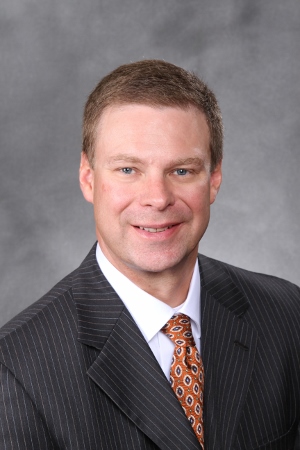Hospital and health system CFOs are facing a number of challenges in healthcare's shifting reimbursement climate, and Paul Belter, vice president and CFO of Arlington Heights, Ill.-based Alexian Brothers Health System, has taken the necessary steps to ensure his system is prepared for the changing environment.
Mr. Belter was named CFO of Alexian Brothers Health System, which is part of St. Louis-based Catholic system Ascension, in 2012. As CFO, he has a number of duties, including overseeing the system's revenue cycle and strategic financial planning.

During his time as Alexian Brothers Health System's financial leader, Mr. Belter has led the system through a number of transactions, including the recent acquisition of The Medical Care Group, which operates an Independent Physician Association and has six locations in the Chicago suburbs. He also provided guidance to the organization while it was coming together with Hinsdale, Ill.-based Adventist Midwest Health to create the third-largest health system in Illinois.
Becker's had the opportunity to catch up with Mr. Belter and get his insight on a number of issues, including navigating in the shifting reimbursement climate and handling challenges facing hospital and health system CFOs.
Question: What is the greatest challenge facing hospital CFOs today?
Paul Belter: The historical fee-for-service reimbursement model was not overly complex, as financial success was driven by recurring increases in both the level of reimbursement and the number of patients served. Hospitals are now facing intense top line pressure, due to declining utilization of their services and related revenue. Payers and employers are rightly interested in lowering their costs, but they're focusing on reducing utilization of services, directing patients to lower-cost providers and shifting more of the cost burden to patients. This requires hospitals to think differently and creatively as to how to serve more members of their communities by being price competitive, consumer-friendly and essentially the provider of choice for not only patients, but also physicians. At the same time, management must remain focused on costs. The challenge is to exist and thrive in the traditional fee-for-service environment, while at the same time preparing for the future model, which ultimately will entail the assumption of financial risk for population health.
Q: How is your hospital navigating in the shifting reimbursement climate?
PB: This is a significant challenge. We exist in a fee-for-service environment, while payers are vigorously looking for ways to reduce utilization of services and our revenues. At the same time, the market is attempting to transition to value-based contracts and population health, but the reimbursement model has not changed. In a fee-for-service world, the only way hospitals can increase revenue is by doing more procedures and providing more services at incrementally higher costs. Any financial benefits of value-based contracting, which is essentially discounted fee-for-service, remains with the payers. As such, preparing for population health currently represents a cost to hospitals, with no financial benefit at this time. We recognize that the model is changing and we cannot stand pat, so it is necessary that we prepare for the transition to a risk-based reimbursement methodology. This entails participating as a Medicare accountable care organization, as well as building a strong clinically integrated network. The final goal of this change is that the incentives for payers, patients and providers will be aligned so that all are working to help those we serve be the healthiest they can be.
Q: In the last year, what has been your greatest accomplishment as a CFO?
PB: Given the numerous financial pressures within the industry and our market, we have effectively managed our cost structure and enjoyed top line growth, which enabled us to continue to remain financially strong. This is important, as we are able to re-invest in our facilities, retain and attract exceptional staff, offer the most up-to-date medical technology and continue to provide needed care to the most poor and vulnerable in our community. We have an exceptional leadership team, and I don't consider any accomplishment the result of a single individual. Over the past year, our work to improve our revenue cycle has continued to drive incremental improvements with a focus on ensuring our records are complete and accurate, and that we are reimbursed appropriately for the services we provide. Our supply chain team, in partnership with Ascension, has driven tremendous cost savings. In short, our success has been largely due to our ability to drive top line growth, while at the same time effectively managing our expenses.
Q: Currently, what is your biggest budget challenge?
PB: The biggest challenge remains with top line revenue growth. Rates and utilization of services continue to deteriorate, which puts additional pressure on serving more members of our community, as well as ongoing efforts to reduce costs. It is now much more difficult to keep revenue growth in excess of expense growth.

